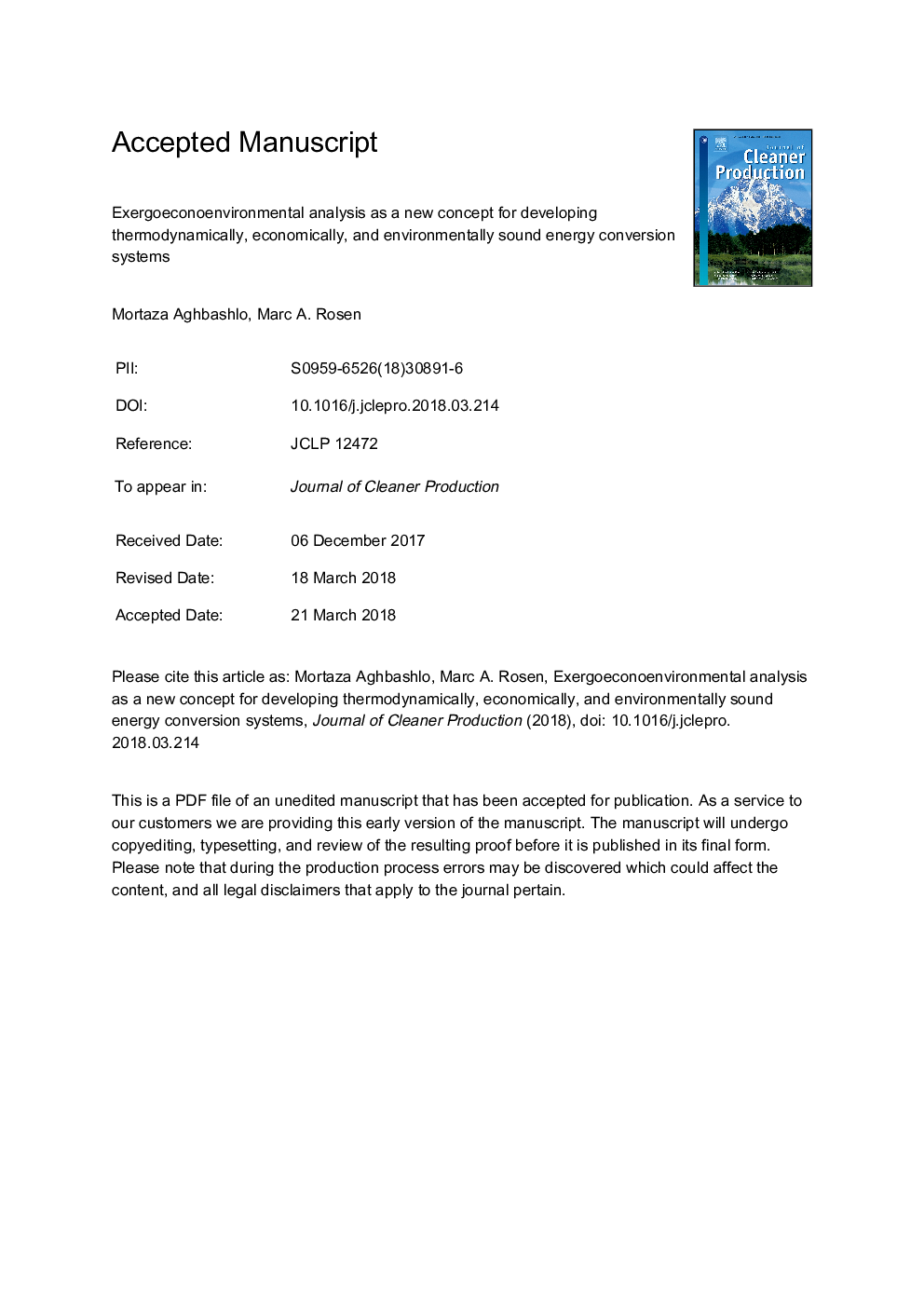| Article ID | Journal | Published Year | Pages | File Type |
|---|---|---|---|---|
| 8095800 | Journal of Cleaner Production | 2018 | 45 Pages |
Abstract
In this paper, a new concept called “exergoeconoenvironmental” analysis is proposed for a better understanding of energy conversion systems with respect to thermodynamic, economic, and environmental perspectives simultaneously. The proposed methodology integrates exergy analysis, economic principles, and environmental assessment into a single framework to provide the decision-maker with information not accessible through available exergy-based methods like exergoeconomic and exergoenvironmental evaluations. In this methodology, the eco-costs/value ratio model is interfaced with exergetic cost theory in order to develop exergoeconoenvironmental balances for components of a given energy system. The systematic methodology used in exergoeconomic and exergoenvironmental analyses, i.e., Specific Exergy Costing, is employed to calculate the eco-costs/value for each stream of the system. The proposed methodology is applied to a well-known gas turbine-based cogeneration system consisting of an air compressor, an air preheater, a combustion chamber, a gas turbine, and a heat-recovery steam generator. The results obtained with the developed approach are compared with those of exergy, exergoeconomic, and exergoenvironmental analyses. The highest eco-costs/value ratio (3.806 USD eco-cost/USD value) is found for the heat-recovery steam generator, followed by the air preheater (2.919 USD eco-cost/USD value). Accordingly, these units are ranked first and second for improvement using exergoeconoenvironmental analysis. The exergoeconoenvironmental factor is small for all components of the plant, indicating the fact that the eco-costs/value ratio associated with exergy destruction is higher than the component-related eco-costs/value ratio. Accordingly, minimizing the exergy destruction can be recommended as a practical and sound strategy for improving the economoenvironmental performance of the plant. Overall, the proposed method appears to be a practical and powerful tool that assesses the efficiency, productivity, and sustainability of energy systems better than available exergy-based methods.
Related Topics
Physical Sciences and Engineering
Energy
Renewable Energy, Sustainability and the Environment
Authors
Mortaza Aghbashlo, Marc A. Rosen,
